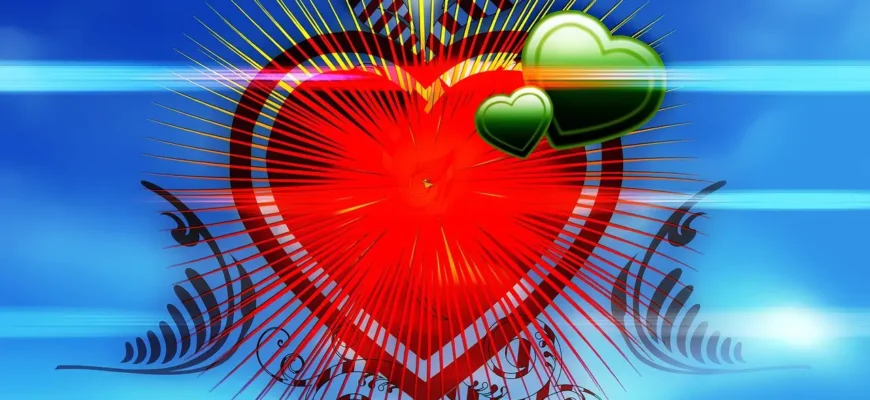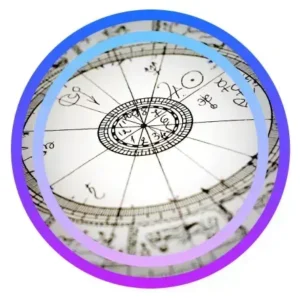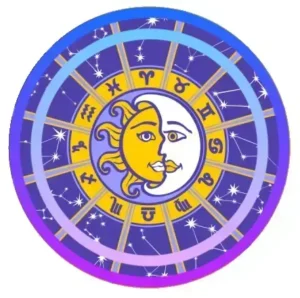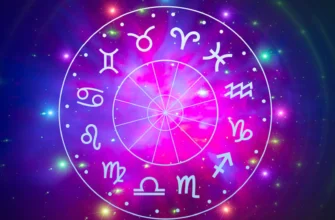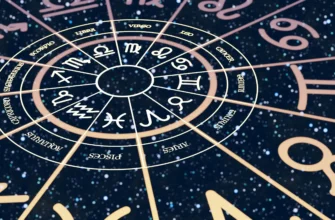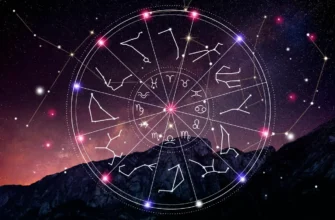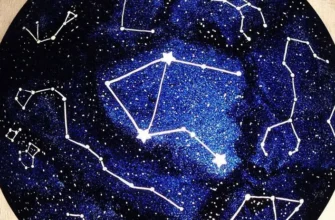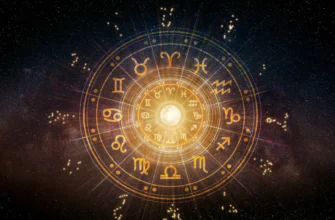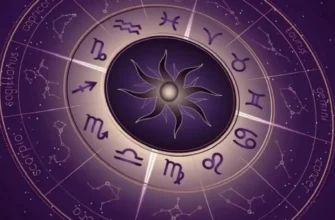Venus square Saturn in synastry is one of the most karmic aspects in relationship astrology. It often brings a sense of unfinished business, emotional lessons, or past-life ties that must be resolved. In love compatibility astrology, Venus represents affection, romance, and emotional expression, while Saturn symbolizes limits, fear, and commitment.
When these energies clash, relationships may feel both deeply meaningful and painfully restrictive. Through synastry chart interpretation, Venus square Saturn reveals insecurities around intimacy, timing issues, or mismatched expectations about love. One partner may crave reassurance, while the other struggles with emotional vulnerability. Yet despite challenges, this aspect often creates a bond that is incredibly difficult to break. In relationship synastry, it signifies loyalty, endurance, and the need to work through obstacles with maturity. A deeper synastry chart meaning suggests that this connection forces both partners to confront emotional fears and redefine what commitment truly means.
Venus square Saturn teaches that some loves hurt rather than heal, that karmic connections don’t guarantee beneficial outcomes, and that sometimes the hardest spiritual lesson involves choosing self-love over soul contracts that might be misunderstood or no longer serving evolution. The aspect reveals that affection without approval creates suffering, that beauty without appreciation becomes burden, and that seeking love from sources structurally incapable of providing it represents painful path whether karmically necessary or simply psychologically repetitive pattern requiring conscious interruption rather than perpetual repetition.
Venus represents love, beauty, pleasure, values, money, harmony, and the capacity to attract, appreciate, and receive affection in the Birth Chart. Saturn embodies karma, limitation, restriction, responsibility, criticism, coldness, and the principle of hard lessons learned through deprivation and suffering. When these planets clash through the 90-degree square aspect, Saturn functions as “debt collector” from past lives, restricting Venus’s natural expression of love, beauty, and pleasure while imposing trials, limitations, and painful lessons that Venus cannot escape despite desperate desire to do so.
The square, as one of astrology’s most friction-producing aspects, creates crisis, obstacles, and painful patterns where Venus’s needs for affection, appreciation, and pleasure consistently meet Saturn’s walls of coldness, criticism, and restriction. Venus cannot receive what they need; Saturn cannot provide what Venus desires. Yet both people remain bound together through karmic attraction that transcends rational choice – Venus feels compelled to keep trying to win Saturn’s approval despite consistent rejection, while Saturn feels obligated to remain in relationship while providing exactly the criticism and limitation that makes Venus suffer.
The Karmic Framework: Venus Owes Saturn a Debt
From esoteric perspective incorporating past-life karma and soul contracts, Venus square Saturn relationships involve Venus “owing” Saturn a debt from previous incarnations. In past lives, Venus might have rejected, betrayed, disappointed, or failed Saturn in contexts involving love, loyalty, resources, or responsibility. Current lifetime offers opportunity for Venus to repay this debt through accepting Saturn’s restriction, criticism, and emotional coldness without abandoning the relationship – essentially experiencing from receiving end what they once inflicted on Saturn in previous incarnation.
Saturn occupies “debt collector” position – not through conscious malice but through karmic imperative to extract payment for past-life injuries. Saturn cannot help but restrict, criticize, limit, and emotionally withhold from Venus because the karmic pattern demands Venus experience these limitations as balancing of scales. Saturn’s coldness toward Venus isn’t personal rejection (though it certainly feels personal to Venus) – it’s cosmic mechanism ensuring Venus learns through suffering the lessons they failed to learn when they were the one inflicting suffering in previous life.
This karmic framework explains why Venus square Saturn relationships feel simultaneously unbearable yet inescapable. Venus desperately wants Saturn’s approval, affection, and acceptance yet receives primarily criticism, coldness, and restriction. Rationally, Venus should leave – the relationship provides more pain than pleasure, more limitation than freedom, more suffering than joy. However, karmic bonds prove stronger than rational self-interest. Venus feels compelled to stay, to keep trying, to continue seeking approval that Saturn either cannot or will not provide, because soul-level contract demands Venus complete karmic repayment before freedom becomes possible.
In horoscope compatibility analysis incorporating karmic dimensions, Venus square Saturn suggests these souls have unfinished business from past lives requiring resolution through current-life relationship where roles have reversed – Venus who once restricted now experiences restriction, Venus who once rejected now experiences rejection, Venus who once withheld now experiences emotional withholding. The relationship exists not to bring happiness but to balance karma through Venus accepting treatment they once inflicted on Saturn.
Financial Restriction and Material Deprivation
Venus square Saturn manifests powerfully through financial restriction, material deprivation, and economic limitations Saturn imposes on Venus. Venus represents money, resources, and material pleasure; Saturn restricts, limits, and denies these very things Venus desires and needs. In marriages or partnerships, this often appears through Saturn using Venus’s money for their own purposes, making financial decisions that harm Venus’s economic security, or simply failing to provide the material comfort and financial stability Venus requires for happiness.
One example involves a husband whose Saturn squared his wife’s Venus – driven by practical business pressures (Saturn), he used her money for ventures that ultimately failed, causing her significant financial losses. The wife’s Venus desires financial security, material comfort, and the pleasure that money enables; the husband’s Saturn systematically undermined these desires through poor financial decisions, business failures, or using her resources for his survival needs without considering her financial wellbeing or security.
This pattern doesn’t necessarily involve malicious intent – Saturn might genuinely believe their financial decisions serve mutual benefit or family needs. However, the square ensures Saturn’s choices consistently damage Venus’s financial position regardless of intentions. Saturn’s “practical considerations” somehow always require Venus to sacrifice, deprive themselves, or accept financial losses they wouldn’t experience with partners whose Saturn doesn’t square their Venus.
The aspect also manifests through Saturn’s criticism of Venus’s spending, taste, or relationship to money and pleasure. Saturn views Venus’s desires for beauty, comfort, and pleasure as frivolous, wasteful, or irresponsible. Venus feels constantly judged for wanting nice things, criticized for spending on pleasure or beauty, and pressured to accept deprivation as virtue. Saturn’s restriction extends beyond actual financial control into psychological realm where Venus internalizes shame about their natural desires for pleasure, beauty, and material comfort.
When examining a Free Synastry Chart for financial compatibility, Venus square Saturn serves as serious warning about economic restriction, material deprivation, and financial harm Venus will likely experience in relationship with Saturn. If partnership continues, Venus must maintain complete financial independence, separate accounts, and legal protection preventing Saturn from accessing or controlling Venus’s resources – because the square almost guarantees Saturn will somehow damage Venus’s financial security whether through direct exploitation, poor decisions affecting shared resources, or simply failing to provide the economic stability Venus needs.
Emotional Coldness and Affection Withholding
Beyond financial restriction, Venus square Saturn creates profound emotional pain through Saturn’s coldness, criticism, and withholding of affection Venus desperately craves. Venus needs warmth, appreciation, verbal affirmation, physical affection, and consistent demonstration that they’re valued, loved, and desired. Saturn provides criticism, emotional distance, affection withdrawal, and subtle (or overt) messages that Venus is inadequate, disappointing, or failing to meet Saturn’s expectations.
Venus cannot understand why Saturn is so cold when Venus tries so hard to please them. Venus gives affection, makes efforts to look beautiful, provides pleasure, sacrifices their own needs – yet Saturn remains unmoved, unimpressed, and emotionally distant. Sometimes Saturn offers brief approval or affection, creating hope in Venus that they’ve finally succeeded in winning Saturn’s love – then Saturn withdraws again, leaving Venus confused and devastated, wondering what they did wrong and how to regain Saturn’s fleeting warmth.
This creates crushing cycle of hope and disappointment where Venus keeps trying harder, giving more, sacrificing further – believing that if they can just be good enough, beautiful enough, selfless enough, Saturn will finally provide the consistent love and approval Venus needs. However, the square ensures this never happens. Saturn’s approval remains perpetually just out of reach – Venus can earn brief moments of acceptance through perfect behavior, but sustained warmth and consistent affection remain impossible regardless of how much Venus achieves or sacrifices.
Saturn often doesn’t consciously recognize they’re being cold or withholding – from Saturn’s perspective, they’re being realistic, responsible, and refusing to provide unearned praise or affection. Saturn believes Venus needs to “grow up,” stop being so needy for approval, and accept that life involves hardship rather than constant pleasure and affirmation. Saturn genuinely doesn’t understand why Venus finds their behavior painful – to Saturn, they’re teaching important lessons about reality rather than being cruel.
In compatibility zodiac analysis for emotional fulfillment, Venus square Saturn indicates Venus will experience chronic emotional deprivation, criticism, and the painful sense that no matter what they do, they cannot earn consistent love and approval from Saturn. The relationship will feel like constant test Venus is perpetually failing despite desperate efforts to succeed.
Gender Role Reversal and Patriarchal Dynamics
When a man’s Venus squares a woman’s Saturn, particular gender dynamics emerge reflecting cultural patterns around masculine and feminine energy. The man unconsciously assumes “feminine” role – seeking approval, focusing on beauty and pleasure, feeling emotionally vulnerable and needing reassurance – while the woman assumes “patriarchal” role of critic, authority figure, and restrictive parent limiting the man’s freedom and pleasure.
The man experiences the woman as harsh, cold, insufficiently gentle, and too much like strict father rather than loving partner. He feels criticized rather than appreciated, restricted rather than supported, and constantly pressured to meet standards he can never quite achieve. The woman’s Saturn energy feels oppressive to his Venus – she judges his taste, criticizes his spending, restricts his pleasure-seeking, and makes him feel inadequate, childish, or irresponsible for wanting affection, beauty, and enjoyment.
The woman, meanwhile, unconsciously re-creates her relationship with her own father through partnership with this man. If she had critical, cold, or restrictive father, she finds herself occupying his role – becoming the disciplinarian, the realist, the one who says “no” to pleasure and demands responsibility over enjoyment. This might feel uncomfortable to her – she didn’t want to become her father – yet the square activates this pattern despite her conscious intentions.
Alternatively, if the woman’s father was absent or inadequate, she might use this relationship to finally occupy position of power and control she lacked in childhood – becoming the authority figure who makes rules, imposes limits, and determines what’s acceptable. The man’s Venus becomes target for her unresolved father issues, receiving treatment reflecting her own wounds around paternal authority, restriction, and approval-seeking that never succeeded.
These gender dynamics reflect cultural patterns more than astrological necessity – the core pattern involves Venus seeking approval from critical Saturn regardless of gender. However, examining traditional gender expressions reveals how Venus-Saturn squares can activate and reinforce patriarchal dynamics where masculine Venus becomes feminized through need for approval while feminine Saturn becomes masculinized through assumption of harsh authority.
The Paradox: Familial Attraction Despite Painful Treatment
One of Venus square Saturn’s most puzzling and painful qualities involves strong familial attraction coexisting with consistently painful treatment. Despite Saturn’s coldness, criticism, and restriction causing Venus genuine suffering, Venus cannot leave. The relationship possesses strange binding force feeling like inescapable family obligation rather than chosen partnership – Venus feels they must stay, must keep trying, must accept Saturn’s harsh treatment because abandoning the relationship feels like betraying fundamental responsibility.
Saturn symbolizes profound karmic connections and inescapable responsibilities that transcend individual desire or preference. When Saturn squares Venus, this sense of inescapable obligation overwhelms Venus’s natural self-preservation instincts. Venus rationally knows the relationship damages them – financial harm, emotional pain, consistent criticism eroding self-esteem – yet they cannot generate sufficient motivation to actually leave. The karmic bond feels stronger than self-love, stronger than friends’ advice to exit, stronger than obvious evidence that staying brings continued suffering.
This dynamic appears clearly in workplace relationships where a superior’s Saturn squares a subordinate’s Venus. The employee endures poor treatment – criticism, underpayment, lack of recognition, perhaps even abuse – yet cannot bring themselves to quit despite better opportunities elsewhere. They feel mysteriously bound to this difficult boss, compelled to keep trying to win approval, unable to break free despite rational understanding that leaving would improve their life.
Similarly, in romantic relationships, Venus endures Saturn’s coldness, financial exploitation, emotional withholding, and consistent criticism year after year, periodically threatening to leave but never actually doing so. Friends and family wonder why Venus stays with someone who treats them so poorly – Venus cannot adequately explain the compulsion to remain except through vague feelings of responsibility, hope that Saturn will eventually change, or simply inability to imagine life without this difficult person despite how much pain they cause.
The square creates what might be called “karmic Stockholm syndrome” where Venus bonds to their restrictor, identifies with their critic, and cannot conceive of freedom from the person limiting their pleasure, beauty, and happiness. This isn’t conscious masochism – Venus doesn’t enjoy suffering – but karmic imperative to complete the lesson overrides Venus’s conscious desires for happiness and fulfillment.
Superiority-Subordination and Power Imbalance
Venus square Saturn creates clear superiority-subordination dynamic where Saturn occupies position of authority, judgment, and power while Venus occupies position of seeking approval, trying to please, and accepting inferior status. This power imbalance might manifest overtly – employer-employee, parent-child, teacher-student, mentor-protégé – or covertly within supposedly equal partnerships where one person nevertheless assumes position of judge while the other desperately seeks approval.
Saturn feels entitled to criticize Venus, set standards Venus must meet, determine what’s acceptable versus unacceptable, and generally position themselves as authority on what constitutes proper behavior, appropriate spending, acceptable pleasure-seeking, or sufficient effort. Saturn’s judgments might be delivered gently or harshly, but the underlying message remains consistent: Venus is inadequate, needs improvement, must do better, hasn’t yet earned full approval or acceptance.
Venus, regardless of objective competence, achievements, or qualities, feels perpetually inadequate in Saturn’s presence. No matter how beautiful Venus makes themselves, Saturn finds flaws. No matter how much Venus gives, Saturn finds it insufficient. No matter how Venus tries to please Saturn, Saturn identifies areas requiring improvement. Venus internalizes Saturn’s criticism, developing harsh inner voice echoing Saturn’s judgments even when Saturn isn’t present.
This power imbalance proves particularly damaging when it contradicts external reality – for example, when Venus objectively contributes more financially, works harder, or possesses superior skills, yet Saturn still occupies position of critic and judge. The psychological power dynamic operates independently of material reality, with Saturn wielding authority based on karmic position rather than earned superiority.
The square ensures Venus cannot successfully challenge or reverse this dynamic. Attempts to assert equality or demand better treatment from Saturn typically result in Saturn’s withdrawal, increased criticism, or simply refusing to engage – punishing Venus for questioning the established hierarchy. Venus learns through repeated painful experiences that accepting subordination and continuing to seek Saturn’s approval provides more relationship stability than demanding equal treatment or respect.
When consulting astrology and horoscope resources about power dynamics and self-esteem, Venus square Saturn indicates relationships that systematically erode Venus’s confidence, autonomy, and sense of worth while elevating Saturn to position of judge and authority determining Venus’s value. These relationships damage rather than support Venus’s wellbeing regardless of karmic purposes they might serve.
No Expectation of Sudden Transformation
One of Venus square Saturn’s cruelest aspects involves impossibility of Saturn “suddenly becoming friendly” or relationship fundamentally transforming into source of warmth, pleasure, and consistent affection Venus desires. Venus might hope that if they just prove themselves sufficiently, sacrifice enough, or love Saturn well enough, Saturn will finally soften, recognize Venus’s value, and become the warm, appreciative partner Venus needs.
This transformation never occurs. Saturn’s restrictive, critical, cold nature toward Venus isn’t temporary phase or defensive armor hiding warmer feelings beneath – it’s fundamental energetic pattern the square creates regardless of either person’s conscious desires. Saturn cannot suddenly become warm, consistently affectionate, and genuinely appreciative of Venus any more than Venus can stop needing approval, affection, and the sense of being valued. The square locks both into fixed positions that time, effort, and love don’t fundamentally alter.
This means Venus faces harsh choice: accept relationship as it actually is – with all its coldness, restriction, criticism, and emotional deprivation – or leave. Staying while hoping Saturn will change guarantees continued suffering as years pass and transformation never materializes. Venus might receive occasional crumbs of approval when they perform perfectly, brief moments of warmth when Saturn feels generous, fleeting periods where criticism lessens – but sustained warmth, consistent appreciation, and the secure sense of being genuinely loved remain perpetually out of reach.
The karmic framework suggests this painful stasis serves purpose: Venus must learn to stop seeking validation from external sources, must develop internal sense of worth independent of others’ approval, must recognize that some relationships cannot provide what we need regardless of how much we sacrifice or how perfect we become. However, learning these lessons through relationship with Saturn’s square creates immense suffering, often leaves lasting damage to self-esteem, and might or might not produce the spiritual growth justifying the pain.
Strategic Response: Protection and Self-Preservation
For Venus individuals trapped in Venus-Saturn square relationships they cannot or will not leave, developing protective strategies becomes essential for survival and minimizing damage. First, Venus must abandon hope that Saturn will transform or relationship will fundamentally change. Accepting harsh reality – this is who Saturn is, this is what relationship provides, nothing will substantially improve – allows Venus to make conscious choices rather than remaining in denial-based hope.
Second, Venus should maintain complete financial independence and legal protection of assets. Saturn will restrict, exploit, or damage Venus’s financial security if given access – not necessarily through conscious malice but through karmic pattern the square creates. Separate accounts, independent income, pre-nuptial agreements, and legal structures preventing Saturn from accessing Venus’s resources protect against financial devastation the aspect frequently produces.
Third, Venus must develop external sources of validation, approval, and affection – friends, family, therapeutic relationships, creative pursuits, spiritual practices – that provide emotional nourishment Saturn cannot or will not give. Depending solely on Saturn for validation guarantees emotional starvation. Building robust external support system allows Venus to receive necessary affection and approval from other sources, reducing dependence on Saturn’s rare and unreliable crumbs of warmth.
Fourth, Venus benefits from therapeutic work addressing why they remain in relationship clearly damaging their wellbeing. Examining karmic beliefs, childhood patterns around approval-seeking, self-worth issues, and fear of abandonment helps Venus understand internal dynamics keeping them bound to Saturn despite rational recognition that leaving would improve their life. Sometimes, understanding the psychological hooks allows Venus to finally break free even when karmic compulsion suggests staying.
Fifth, if Venus absolutely cannot leave – due to children, financial constraints, immigration status, or genuine karmic imperative to complete the lesson – they must develop emotional boundaries preventing Saturn’s criticism from continuously eroding self-esteem. This might involve internal mantra reminding themselves “Saturn’s judgment reflects Saturn’s issues, not my actual worth,” therapeutic processing of criticism rather than internalizing it, or maintaining separate social identity outside relationship where Venus receives recognition Saturn refuses to provide.
When Leaving Becomes Possible and Necessary
While karmic framework suggests Venus-Saturn squares involve obligations transcending personal preference, not all such relationships must continue indefinitely. Sometimes, karmic lesson involves learning to leave – recognizing that some connections damage rather than serve evolution, developing enough self-worth to choose self-preservation over karmic obligation, and accepting that not all soul contracts require completion regardless of pain involved.
If relationship involves financial devastation threatening Venus’s survival, physical abuse, severe psychological damage, or patterns clearly destroying rather than refining Venus, leaving represents not karmic failure but spiritual maturity. The universe doesn’t require anyone to accept destruction in service of karmic repayment – if suffering exceeds capacity for growth, if relationship damages extends into trauma territory, if staying risks genuine harm beyond discomfort and limitation, leaving becomes spiritually appropriate choice rather than karmic escape.
Signs that leaving has become necessary include: chronic depression, suicidal ideation, complete loss of self-worth, physical health deterioration from stress, financial ruin, isolation from all other support systems, or recognition that continuing relationship will cause irreversible damage to Venus’s capacity for future love, trust, or happiness. When relationship crosses from painful lesson into actual destruction, karmic obligation yields to self-preservation imperative.
The challenge involves distinguishing between discomfort requiring perseverance and genuine danger requiring exit – karmic frameworks can rationalize staying in destructive situations by framing obvious abuse as necessary lessons. However, spiritual wisdom recognizes that some relationships are simply toxic regardless of karmic origins, and that protecting oneself represents higher spiritual choice than martyring oneself to complete potentially misinterpreted soul contracts.
Conclusion: When Love Becomes Penance
Venus square Saturn in synastry ultimately represents love experienced as penance – a relationship where affection meets restriction, where beauty encounters criticism, and where the natural desire for pleasure, warmth, and appreciation consistently meets walls of coldness, judgment, and emotional deprivation. The aspect creates some of astrology’s most painful relationship dynamics, where Venus remains bound through karmic compulsion to partner who cannot or will not provide the consistent love, approval, and emotional nourishment Venus desperately needs and naturally deserves.
Understanding this aspect means recognizing that not all connections exist to bring happiness – some relationships serve primarily as vehicles for karmic balancing, spiritual lessons, or working through past-life patterns that require experiencing from receiving end what was once inflicted on others. These purposes might hold spiritual value, but they don’t necessarily justify the suffering involved or require indefinite continuation regardless of damage sustained.
For those exploring their Synastry online connections and discovering Venus square Saturn in significant relationships, honest assessment becomes crucial: Is this relationship refining me or destroying me? Am I growing through discomfort or being traumatized through abuse? Can I maintain enough self-worth to survive Saturn’s criticism, or is my sense of value eroding beyond repair? Does staying serve genuine spiritual purpose, or am I rationalizing obviously destructive dynamics through karmic frameworks that might not actually apply?

